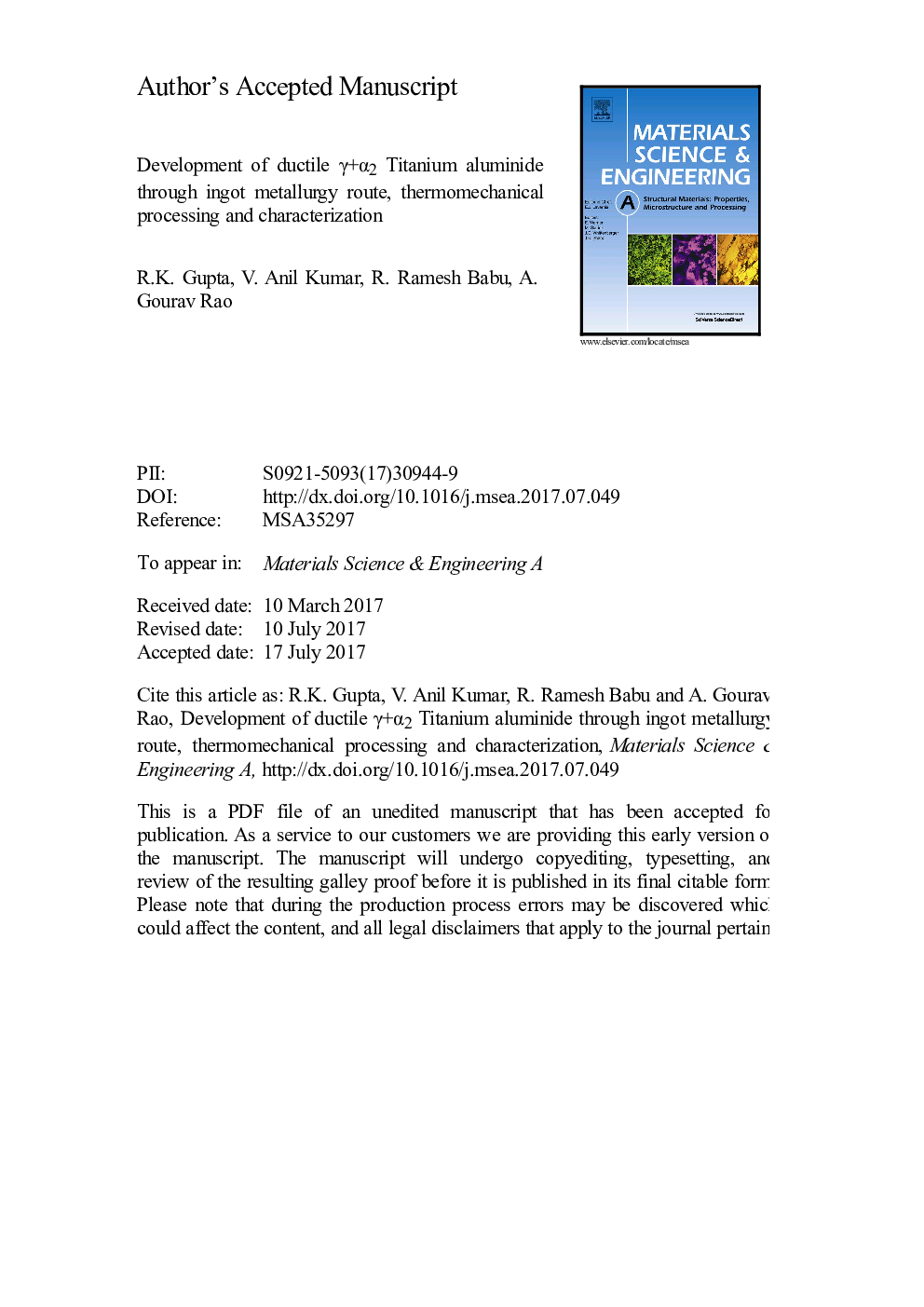| Article ID | Journal | Published Year | Pages | File Type |
|---|---|---|---|---|
| 5455306 | Materials Science and Engineering: A | 2017 | 29 Pages |
Abstract
The alloy is found to have predominantly two phases γ (TiAl) and α2 (Ti3Al) with moderately random texture and presence of small volume fraction of β-phase. Microstructure showed presence of varying width of α2+γ lamellar structure. Transmission electron microscopy (TEM) confirmed presence of extensive twinning, dislocations and stacking faults with two phase structure indicating twinning has played a significant role in deformation. Presence of minor amount of β phase has been found to be contributing factor for improvement in ductility. Fracture analysis shows failure was mainly by rupture of lamellar interfaces. Occasional deformation of lamellae is also noticed in the uniaxial tensile tested samples at intermediate strain rates of 10â3 sâ1 and 10â2 sâ1 wherever small increase in ductility is observed. Marginally lower ductility at lower strain rate is due to growth of microcracks at interlamellar sites of dissimilar orientation and at higher strain rate due to faster growth of microcracks at lamellae of similar orientation.
Related Topics
Physical Sciences and Engineering
Materials Science
Materials Science (General)
Authors
R.K. Gupta, V. Anil Kumar, R. Ramesh Babu, A. Gourav Rao,
